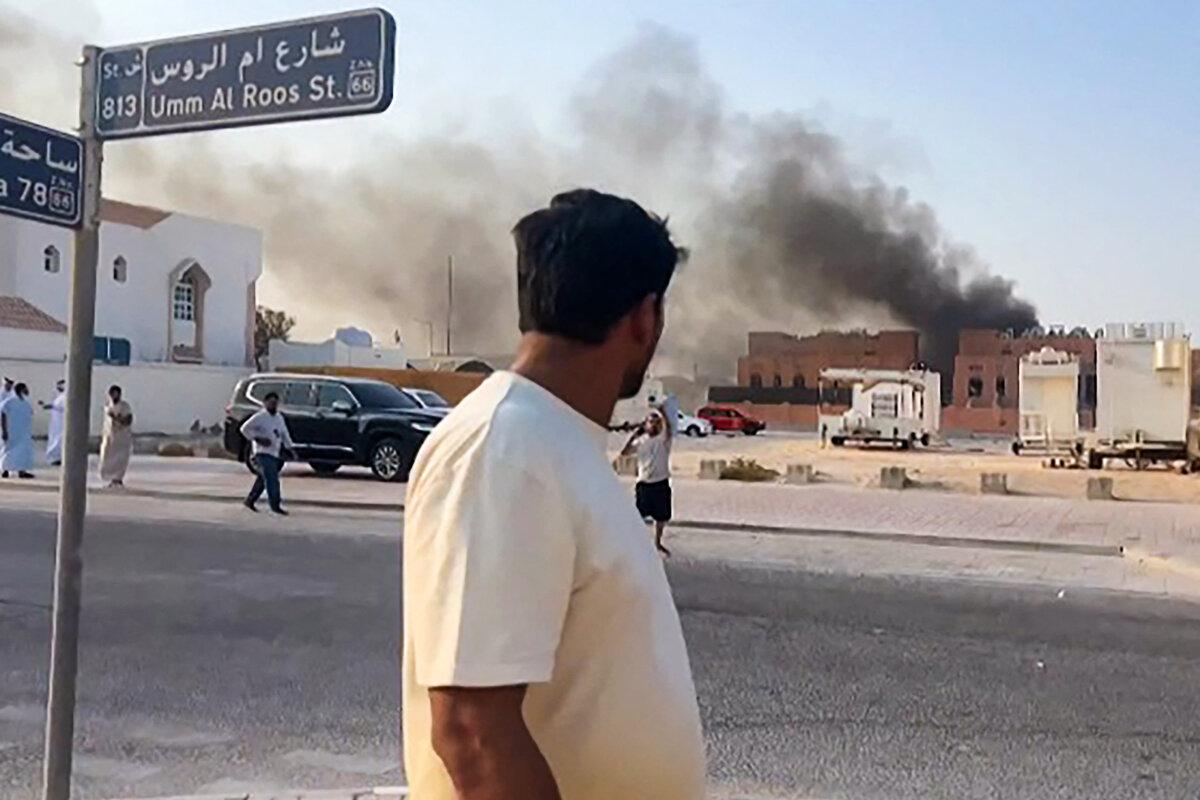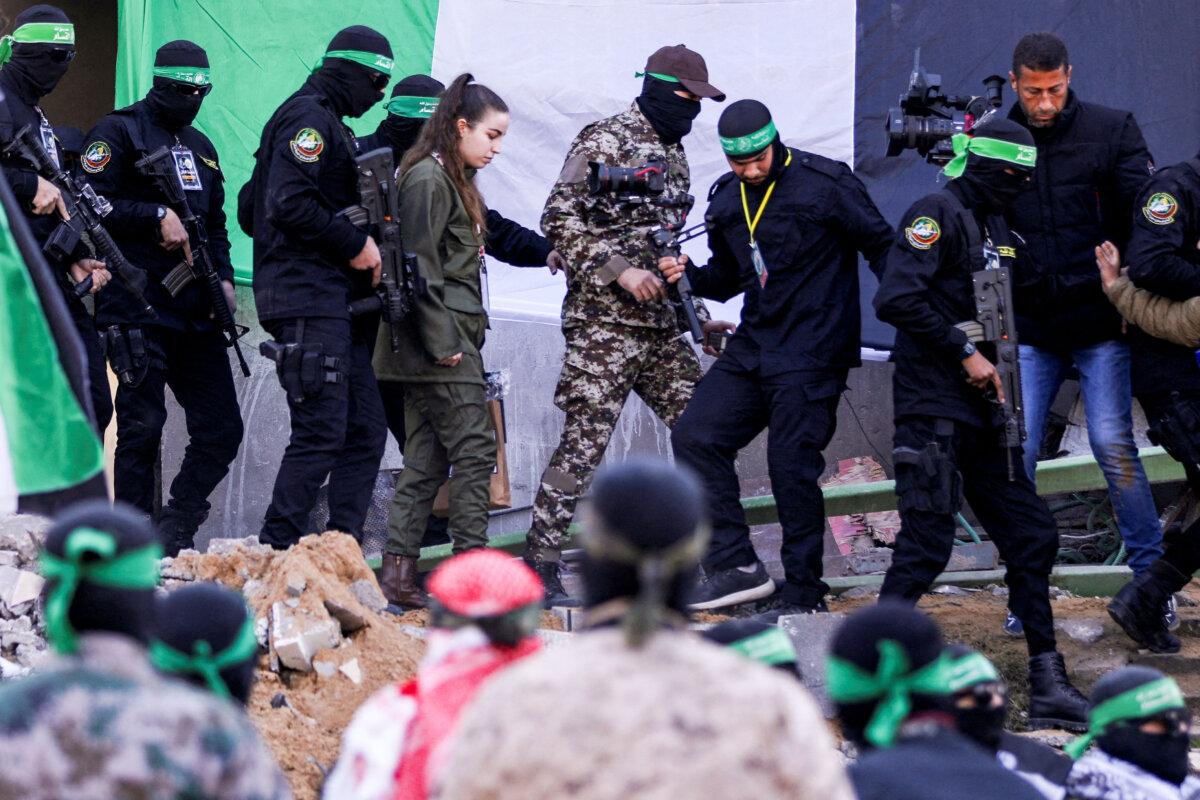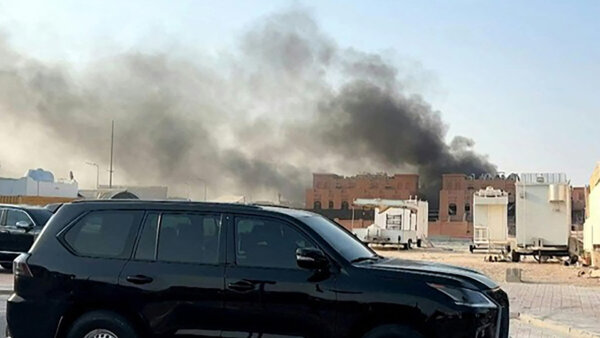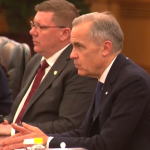![]() The Israeli military launched a surprise strike on Doha, Qatar, on Sept. 9, intending to eliminate several political leaders of Hamas.
The Israeli military launched a surprise strike on Doha, Qatar, on Sept. 9, intending to eliminate several political leaders of Hamas.
Qatar has played the role of mediator throughout the ongoing Israel-Hamas conflict in the Gaza Strip. The Israeli strike comes as leaders of Hamas—an internationally-designated terrorist organization—have been reviewing the latest U.S. proposal to secure the release of hostages the group took on Oct. 7, 2023, and bring an end to nearly two years of fighting in Gaza.
Hamas Officials Killed in Doha
“For years, these members of the Hamas leadership have led the terrorist organization’s operations, [they] are directly responsible for the brutal October 7 massacre, and have been orchestrating and managing the war against the State of Israel,” the Israeli military said in a Tuesday press statement announcing the strike.
Shortly after the strike, Hamas issued a statement claiming that five of its members were killed. The group named the deceased as Jihad Labbad, Hammam Al-Hayya, Abdullah Abdul Wahid, Moamen Hassouna, and Ahmed Al-Mamluk. The group said a member of a Qatari security service, who they identified as Cpl. Badr Al-Hamidi, was also killed in the strike.
For years, Hamas has maintained an office in Doha, placing an element of its political leadership outside of the Gaza Strip.
In the course of their Oct. 7, 2023, attack, Hamas and other Palestinian militants killed roughly 1,200 people, mostly civilians, and abducted 251 people back to the Gaza Strip as hostages. About 20 are still believed to be alive. While Hamas gunmen have continued to fight throughout the Gaza Strip and shuffle around the hostages from one secret location to the next, Hamas negotiators in Doha have sought to trade their remaining hostages in exchange for Israel to release potentially hundreds of Palestinians they have detained over the years on charges like terrorism; cease fighting and withdraw from the Gaza Strip; and permit more humanitarian aid to enter the territory.
The Qatari government, which has not designated Hamas as a terrorist organization, has allowed the group to continue operating in its capital city of Doha. In the course of the ongoing conflict in the Gaza Strip, the Qatari government has offered to help mediate negotiations between Hamas and Israel.
US Had Foreknowledge, Says Israel Acted Unilaterally
In a post on his Truth Social on Tuesday afternoon, Trump said Israeli Prime Minister Benjamin Netanyahu was the one who decided to launch the Doha strike and he had no input on the matter.
“Unilaterally bombing inside Qatar, a Sovereign Nation and close Ally of the United States, that is working very hard and bravely taking risks with us to broker Peace, does not advance Israel or America’s goals,” Trump wrote.
“However, eliminating Hamas, who have profited off the misery of those living in Gaza, is a worthy goal.”


Netanyahu issued his own statement, saying Israel was solely responsible for the strike.
In his Truth Social post, Trump said that upon gaining advanced notice of the Israeli strike, he immediately directed special presidential envoy Steve Witkoff “to inform the Qataris of the impending attack, which he did, however, unfortunately, too late to stop the attack.”
Negotiations Impacted
Israel’s strike on Doha comes shortly after U.S. representatives relayed the Trump administration’s latest proposal to end the Gaza conflict.
“I have warned Hamas about the consequences of not accepting. This is my last warning, there will not be another one!” Trump wrote.
The specific terms of the latest Trump administration proposal have not been released publicly.
Over the weekend, Hamas issued a statement saying they remain open to a deal that results in a permanent cease-fire in Gaza, a comprehensive withdrawal of Israeli forces from the embattled territory, the unconditional entry of humanitarian aid, and an exchange of captives.
Following the Tuesday strike in Doha, Hamas issued a new statement, asserting that Netanyahu is not serious about reaching an agreement.
“Targeting the negotiating delegation, while it was discussing U.S. President Donald Trump’s latest proposal, confirms beyond a shadow of a doubt that Netanyahu and his government do not want to reach any agreement,” the group said in a press statement.


Qatari Foreign Ministry spokesman Majed Al-Ansari also condemned the strike.
World Leaders Criticize Strike
Leaders around the world voiced their criticism of the Israeli strike on Tuesday.
“Today’s Israeli strikes on Qatar are unacceptable, whatever the reason,” Macron said on Tuesday.
Carney said that, regardless of the intended objective of the strike, such attacks risk escalating the Gaza conflict into a regional one. The Canadian prime minister said the strike also threatens efforts to win the release of the remaining hostages and get to a lasting cease-fire; all efforts for which Carney said Al-Thani “plays a highly constructive role.”
US Lawmakers React
Responses to the Doha strike from U.S. lawmakers have been more mixed.
When asked for comment about the strike, Sen. James Lankford (R-Okla.), who sits on the Senate Intelligence Committee, told The Epoch Times, “The Israelis have made it very, very clear for leaders of Hamas, if they’re hiding in Tehran, or if they’re hiding in Gaza City, they’re going to go after individuals that are trying to be able to kill Israelis.”
Sen. Mark Kelly (D-Ariz.), who sits on the Senate Armed Services Committee and Senate Intelligence Committee, told reporters he wasn’t certain who was killed in the Doha strike but stressed that there is a distinction between Hamas negotiators and Hamas fighters.


Kelly said that targeting Hamas negotiators is “different than going after somebody who is operationally a terrorist.”
The Arizona Democrat said striking Qatar, in general, is a “rather aggressive” move by Israel.
“The Israeli government is again attempting to murder ceasefire negotiators, now bombing the capital of a U.S. ally with total impunity,” she wrote. “It is clear they have no interest in a ceasefire to end their genocide of Palestinians. We must stop funding and arming this insanity.”
Speaking with Fox News on Tuesday, Rep. Brian Mast (R-Fla.)—who served in the U.S. military and later volunteered to serve in the Israeli military and who now sites on the House Foreign Affairs Committee—said the Israeli strike on Qatar shows that “foreign policy is not as black and white as we always want it to be.”
Mast said of the Israeli strike in Doha, one strategic U.S. ally “just slapped another” U.S. ally.
“That’s a problem with us in the middle in part,” Mast continued. “But any dead Hamas is good. We want to see dead Hamas across the board, even if it’s the ones that are hiding behind the negotiating table, which is what they’ve been doing in a safe house in Qatar.”











